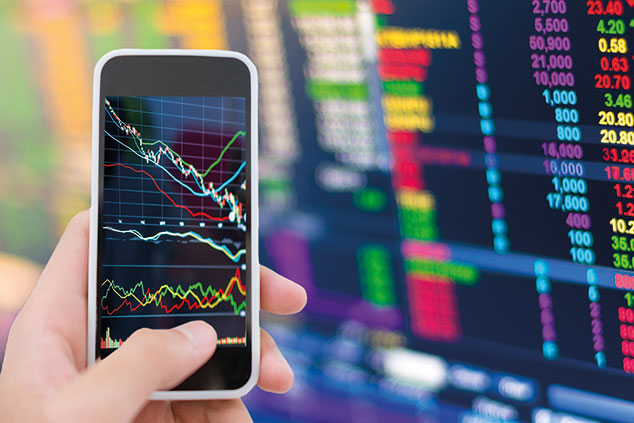
Blockchain was designed as a distributed digital ledger: a decentralised database shared across a network of computers. Once records are added to the chain and verified, they cannot be altered. Blockchain rose to prominence as the technology underpinning the cryptocurrency bitcoin. But recently it has been used to create thousands of new digital coins.
These have been sold to the public through initial coin offerings (ICOs), the digital currency versions of initial public offerings in equity markets. Developers offered their coins for sale in the hope they would emulate bitcoin’s meteoric price rise.
Thanks to the bitcoin-induced digital currency craze, they often did, and ICOs soon became a way to raise a lot of money quickly, no questions asked. A typical ICO would see a developer knocking up a slick-looking white paper promising returns in the many thousands of percent if you would buy a bucketful of his crypto-tokens.
In one notorious case, a developer raked in $343,000 even though he had made clear he would blow the money on flatscreen TVs. The bubble has now burst, and most crypto-coins have withered and died. Deadcoins.com lists almost a thousand defunct crypto-coins. Not surprisingly, ICOs quickly fell foul of regulators.
Blockchain is back – wearing a suit
Now, however, ICOs are maturing and are about to take their place in the legitimate and regulated world of financial instruments. A key way in which many people have been trying to develop blockchain is using it to “tokenise” assets: the coins should relate to something specific. Now securitised token offerings (STOs) are the latest thing in blockchain circles.
STOs have some of the characteristics of coin offerings, but are fully regulated and backed by real value: a share in the profits or assets of a company, for instance. In this way, companies can be opened up to investors without the need to go through the long and expensive IPO process. Tokens can be traded as securities, and will confer all the rights of traditional equities – voting rights, dividends, and so on.
In the UK, the Financial Conduct Authority’s “regulatory sandbox” allows fintech companies to develop new technologies and products, testing them in the market on real consumers. The latest cohort contained several companies working on blockchain technology. Among them was Globacap, which towards the end of last year issued the UK’s first security tokens representing equity ownership in a company.
The blockchain-based tokens contained so-called “smart contracts” that record ownership and fulfil legal requirements, such as know-your-customer and anti-money laundering regulations. Tokens won’t be limited to equities, but could encompass debt, private-equity funds, or property – indeed, any asset.
This year, then, could see security tokens take off in the same way as 2017 saw ICOs explode onto the scene. Tokens are the logical next step for blockchain and bring the technology closer to realising the potential its advocates have always highlighted: bringing cheap, transparent and secure transactions to financial markets and beyond.
News bytes… blockchain to track batteries and Dogg invests in unicorn
• One area blockchain and smart contracts have always seemed particularly suitable for is supply chain management and logistics. The latest example of real-world blockchain use comes from the Ford Motor Company, says the Financial Times. Ford will use the technology to track the provenance of the cobalt used in the batteries for its electric cars. Working with battery-maker LG Chem and Chinese cobalt producer Huayou Cobalt, it will monitor the shipment of the metal from Huayou’s mine in DR Congo to ensure none is produced by workers subjected to human rights abuses. Up to 20% of the cobalt from DR Congo is mined by hand.
• A transatlantic battle for supremacy is breaking out in the world of free share-trading apps. British startup Freetrade, whose fee-free share-buying service went public last autumn, launched US share trading last week, says City AM. Freetrade currently has around 10,000 users, with 90,000 more on its waiting list. At the same time, US trading app Robinhood is reported to be looking to expand into the UK.
The US company, which has been in business since 2015 and has more than three million customer accounts, has been quietly taking on staff in the UK for some time now, reports Steve O’Hear on TechCrunch.com. And last week, it appointed former TransferWise executive Wander Rutgers to head its London Office, according to James Cook in The Daily Telegraph.
• US rapper Snoop Dogg, whose real name is Calvin Broadus, has invested an undisclosed sum in Swedish fintech unicorn Klarna, says Forbes. Klarna, which was founded in 2005 and is valued at $2.5bn, allows users to buy goods online and pay up to 30 days later, interest-free; it also offers a pay-in-instalments service that does charge interest.
The venture has signed up 60 million shoppers and 100,000 merchants across 14 countries. Snoop Dogg is no stranger to venture capital, having put money into a Californian marijuana delivery business and social-media site Reddit, as well as the share-trading app Robinhood. “I’ve been doing business in Europe for years,” he says.